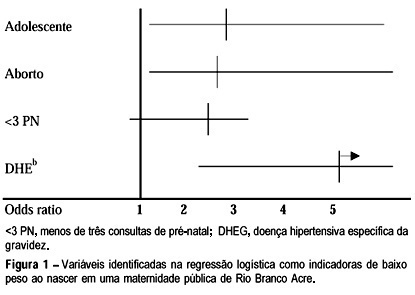Summary
. ;:513-519
DOI 10.1590/S0100-72032002000800003
Purpose: to study pregnancy in adolescent women as a possible risk factor for low birth weight. Material and Methods: a cross-wide study was performed on 562 adolescent and non-adolescent mothers who were interviewed during the first 24 h after delivery in the period from January 10,2002, to March 25, 2002, in a public maternity hospital located in Rio Branco, Acre State, Brazil. Those who delivered dead fetuses, whose babies died after being born, or had twins were excluded from the study. Results: among the 562 mothers who were studied, 37.0% (n=208) were teenagers (16±1.6 years), and 63.0% (n=354) were 20 or more years old (22.9±6.3 years). The average weight of the newborns was statistically higher (p<0.010) among the adult mothers (3,158.64±626.50 g) than among the adolescent mothers (3,019.93±587.43 g). When the 32 (5.7%) premature newborn babies (<37 week's pregnancy) were excluded, there was also a significantly greater proportion (p<0.007) of newborns with low weight (<2,500 g) among the adolescent mothers (11.9%) than among the non-adolescent ones (5.5%). The analysis of logistic regression showed an increased risk for newborns with low weight among the adolescent mothers (OR=2.99; 1.47-6.07), as well as for abortion (OR=2.78; 1.23-6.30) and pregnancy - induced hypertensive disorders (OR=5.16; 1.65-16.12). Conclusions: the present study shows that associated with the psychosocial, familial, and economic impact, already reported in the literature, pregnancy in adolescents is associated with deleterious effects on the conceptus, which requires a cohort study to assess the repercussions at both the medium- and long-term.
